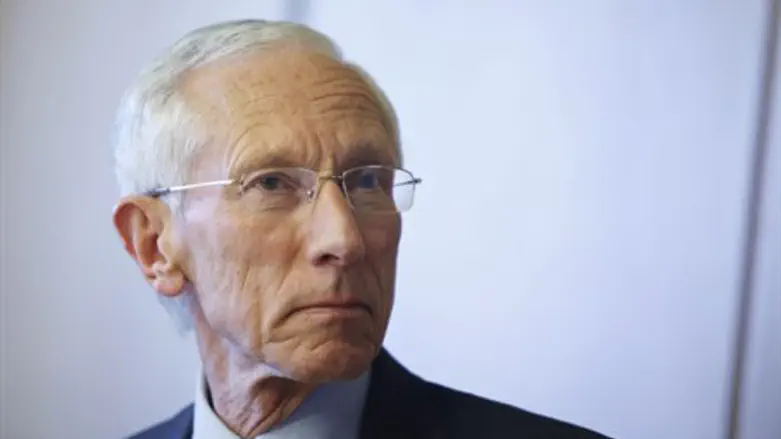
Former Bank of Israel Governor Stanley Fischer is edging closer to becoming vice chairman of the Federal Reserve.
On Tuesday, Fischer’s nomination cleared a key procedural hurdle in the Senate.
According to Reuters, the Senate agreed 62-35 to limit debate on the nomination, allowing for a final vote just after midday on Wednesday.
Fischer is widely expected to win Senate approval.
The arrival of Fischer, 70, will help bring the seven-member Fed Board of Governors back toward full strength after a period when its membership threatened to dip as low as three with the departure at the end of this month of Jeremy Stein.
Fischer's appointment for an initial four-year term as vice chairman puts him in a pivotal position as the central bank approaches decisions about the end of its stimulus programs and when to begin raising interest rates after five years of historically loose monetary policy.
Fischer is considered one of the top economic minds of his generation, both for his academic work and for his policymaking. He was the No. 2 at the International Monetary Fund during the Asian economic crisis in the 1990s and was governor of the Bank of Israel through the global financial crisis a decade later.
In 2011, Fischer attempted to run for the position of head of the International Monetary Fund, but he was disqualified due to the fact that his age at the time was two years beyond the ceiling set by the organization’s bylaws.
He stepped down as governor of the Bank of Israel last June, midway through his second five-year term, and was ultimately replaced by Dr. Karnit Flug, who had served as his deputy.
"Since the Asian crisis and later when the critical importance of the financial system became so central, he has increasingly focused ... on financial stability and the dangers of the buildup of systemic risks," Ratna Sahay, a top IMF official who served as one of Fischer's advisers on Asia policy, was quoted by Reuters as having said.
